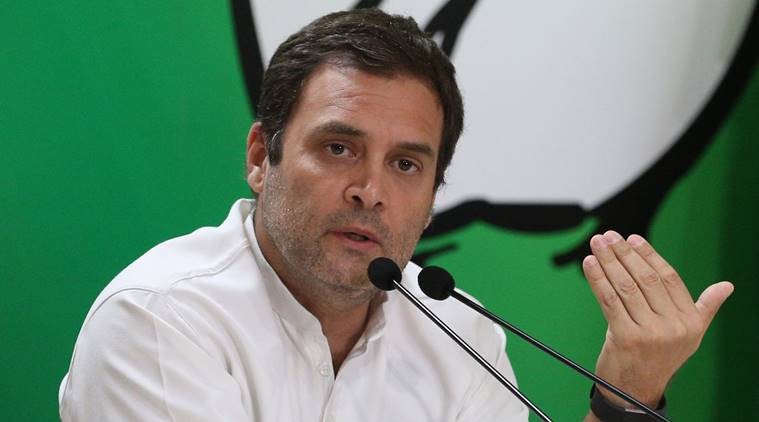
Congress president Rahul Gandhi on Thursday attacked External Affairs Minister Sushma Swaraj over her statement in Parliament on the Doklam standoff with China.
"Amazing how a lady like Sushma ji has buckled and prostrated herself in front of Chinese power. Absolute subservience to the leader means our brave jawan has been betrayed on the border," Gandhi tweeted.
Amazing how a lady like Sushma ji has buckled and prostrated herself in front of Chinese power. Absolute subservience to the leader means our brave jawan has been betrayed on the border. #Doklamhttps://t.co/UALkmH0jZ1
— Rahul Gandhi (@RahulGandhi) August 2, 2018
Along with the post, the Congress president also tweeted a news report that quoted a US official as saying that China has quietly resumed its activities in the Doklam area and neither Bhutan nor India has sought to dissuade it.
Swaraj had clarified in the Lok Sabha on Wednesday that the India-China face-off in Doklam was resolved through "diplomatic maturity without losing any ground" and status quo has been maintained.
The foreign minister assured that there has not been even an iota of change at the plateau where Indian and Chinese troops had been locked in a 73-day standoff last year.
Modi government has resolved the Doklam issue with utmost diplomatic and strategic maturity. There is no change in the status-quo at the face-off site in Doklam: EAM Smt @SushmaSwaraj pic.twitter.com/2BZ4KPES4A
— BJP (@BJP4India) August 1, 2018
Swaraj’s assurances, however, did not impress the Congress. The party said that the statement was proof of the Narendra Modi-led government's uncertain foreign policy and "continuous flip flops in Chinese misadventure in Doklam which is harming India's interests."
The debate over Doklam rekindled after US Congresswomen Ann Wagner posed a question, “Although both countries back down, China has quietly resumed its activities in Doklam and neither Bhutan nor India has sought to dissuade it. China's activities in the Himalayas remind me of its south China Sea policies. How should our failure to respond to the militarisation of the South China Sea inform the international response to these Himalayan border disputes?”


.jpeg)

